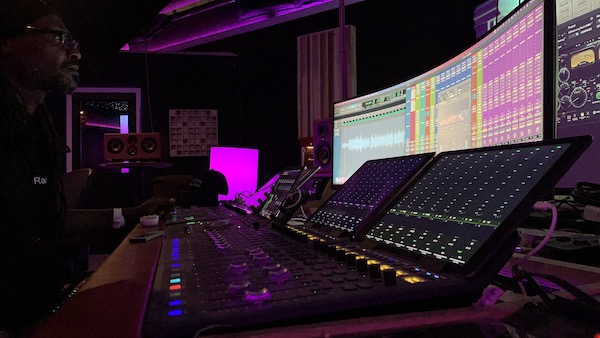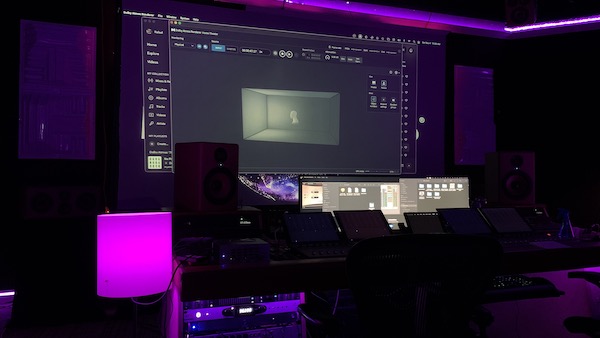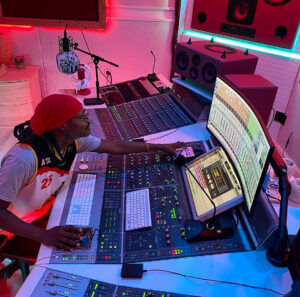As a music artist, releasing your first album in the market is one of the most difficult and overwhelming things at the same time.
As listeners, when we hit the play button of an album, and the melody rings in our ears, we realize what a heaven singer’s voice is. But the fact is, it’s not just the singer who makes the song beautiful, but seamless melodies, powerful vocals, and crisp beats.
And trust me it takes a lot of dedicated hours of hard work to come up with a hit music album. I won’t budge into the fact whether releasing a music album is better than an EP, or singles. They all have their own significance in the industry, however, we will be discussing the facts, and factors that make an album successful.
Have you ever thought of how famous musicians make their music albums that instantly resonate with their listeners? How does a melody that is just in one’s head get translated into the real world that is much more intricate than most can fathom?
You can’t just create and release your first-ever music album just by clicking on the record button and hope it becomes an industry hit. You need to try your best, you need to create your best. Being the best is never easy, you need to be creative, have precise technical skills, and polish your sound judgment.
In this blog, we will discuss and explore the fascinating journey of creating an album. This is a guide to what you should do in order to make your music album a hit. And goes on in a Music recording studio Atlanta during the process of creating an album.
Let’s begin!
( Also Read About – What Goes into Making a Recording Studio Great? )

1. Your pre-production work:
Before you even think of making your music album in an Atlanta recording studio, you need a base, a song, a script, and a proper plan on how to produce your first album in the market. In short, you need a pre-production plan, here you will need to collaborate with your producer and other artists.
In the pre-production phase you will need to do the following things:
Songwriting and composition:
You must have come across the old songs redefined, and released as remake. Yes, releasing songs does not always have to write a new material from scratch, nowadays many artists just refine the existing piece.
You can write your songs solo, or in collaboration with other songwriters with experience. In this step you come up with different factors- your own lyrics (if any), a well-shaped melody, and decisions like chord progressions.
Demos
What does the word demo mean?- creating samples, a sample of what you have thought and planned. Demos usually involve a rough recording, this is generally done in order to help visualize the potential of your song.
It is not necessary to record a demo in a studio, you can record it even at your home, and however for a better take it is advisable to record in a studio.
These demo works act as a blueprint and allow artists and producers to look for what works, and which area needs a check.
Arranging:
Here you will need to make a decision and decide the structure of your project. Whether, you will be making a chorus, verse, bridge, or something else. This structure of your project will dictate the flow and emotional arc of the track.
Rehearsals:
Practice is what makes anything perfect. Most of the bands, especially the famous ones, spend a lot of time in rehearsal. In order to lock in the rhythm, harmonies, and transitions, thus, ensuring they’re studio-ready.

2. Setting up the studio environment for the recording:
Once you have made your pre-production plan and work, the next thing that matters the most is your setup. You can’t record the best without the best environment. So, what do you actually need to record a masterpiece?
High-quality microphones, soundproof rooms, mixing consoles, and digital audio workstations (DAWs). A recording studio with these included makes the perfect space to record a masterpiece.
Acoustic Treatment:
A proper acoustic treatment makes sure that your music has proper clarity and is free from all the unwanted noise, especially echoes.
Equipment setup:
A proper recording studio is what comprises proper microphones, amps, and instruments, adjusting placements in order to capture the best sound. Artists use different mics to record the different music elements, and instruments in order to achieve clarity of every sound
Sound check:
A sound check makes sure that all the instruments are working properly, and all the audio levels are balanced well. These adjustments are quite important in order to achieve sound clarity and prevent distortion.
3. Tracking: capturing the performance:
Tracking is where the magic begins. Tracking is all about capturing every essence of each element, and instrument of your song.
Layering the foundation:
Most of the tracking sessions in Atlanta recording studio start with recording the rhythmic music- sounds of drums, and bass. And sometimes you also need a guide with vocals and guitar in order to form the structure of your album.
Instrument recording:
How you want your music to sound is what matters, and accordingly, you can record the sound of every instrument separately or collectively.
Vocals recording:
Usually, singers capture, and record their vocals after they are completed with their instrumental tracking. However, sometimes they have to take more than a few retakes in order to capture different emotions, and the essence of music.
Overdubbing:
Don’t confuse yourself over overdubbing, it is not always about vocals, sometimes it also includes various musical instruments. In overdubbing additional layers of harmonies, vocals, and some other musical instruments are recorded in order to enhance your music album.
Doesn’t matter if you have queries regarding music studio or Atlanta dance studio rental, we are just a call away.
4. Editing: polishing the rough edges:
Once you have a rough sketch of what you imagined for your song you are at the very right stage to begin your editing. You will need to select the best parts from the multiple takes and stitch them together.
Make use of trimming, and tuning adjustments with the help of Auto-Tune or Melodyne. This ensures that the instruments sync perfectly with the desirable pitch.
And at last, remove all the unwanted background sounds, clicks, or pops in the editing stage.
5. Mixing: Crafting the Sonic Landscape:
Mixing is where your music becomes lively. After you are done with your recording and editing- it’s time for mixing the mash!
This is the stage where all the different elements, and tracks of the song are combined together to create a cohesive sound.
This is where the actual work of Dolby Atmos comes to shine its feathers. In this mixing stage, we generally utilize specialized software or tools like- Dolby Atmos Renderer.
Here the sound engineer places every sound element on raw tracks, adjusts levels, and pans instruments across the stereo field. Hence, making sure that each element fits perfectly in the song. A song that he wishes to make.
The sound engineer then listens with all his ears, whether the pitch of the song is way too high, or low, if it is clear or not. And makes sure that the overall sound is perfectly balanced. ( Is Dolby Atmos the Future of Mixing? )

6. Mastering: The Final Touches:
After you have completely mixed the soundtracks, the next step is mastering the audio. You can say this is the final stage in the music production process. And this is the very stage where your song gets its polish, and is ready to be distributed further- ready for its release.
In this stage, the sound engineer makes small adjustments in the EQ to enhance the sounds and makes sure it has a consistent volume level. Mastering is what makes your album ready to be played on any device, whether it’s CD, vinyl, or digital streaming platforms.
( Read More- Dolby Atmos Music Mastering )
7. Final Review and Release: The Big Moment:
After mastering, the album is all ready to be released. However, if the producer or artists review it and find an error. They make last-minute changes before the song is released. This final draft is presented to a small audience, to get a review, and make adjustments accordingly.
Once everyone is happy with the draft, the album is set to be released to the public.
8. Post-Release: The Album’s Journey:
Even after the album is released, the work doesn’t stop. The album will go through various phases, such as touring to support the release, radio promotion, and even possible re-releases or deluxe versions. In today’s digital age, albums can also gain new life through streaming services, social media, and viral trends.
Conclusion:
Recording music can turn out to be a tough task especially when you are a beginner in this field. And looking for a proper recording studio to compose your music.
Just remember to be organized, have a plan, take your time, and follow the guide mentioned in this blog.
Make sure your studio has everything mentioned in the above 6 points.
In this blog, we discussed the 6 points that you need to have in your studio.
If you are someone who’s facing difficulties in finding the best Atlanta recording studio. Don’t worry, we got you, the Best Recording Studios in Atlanta is here to help you out.

